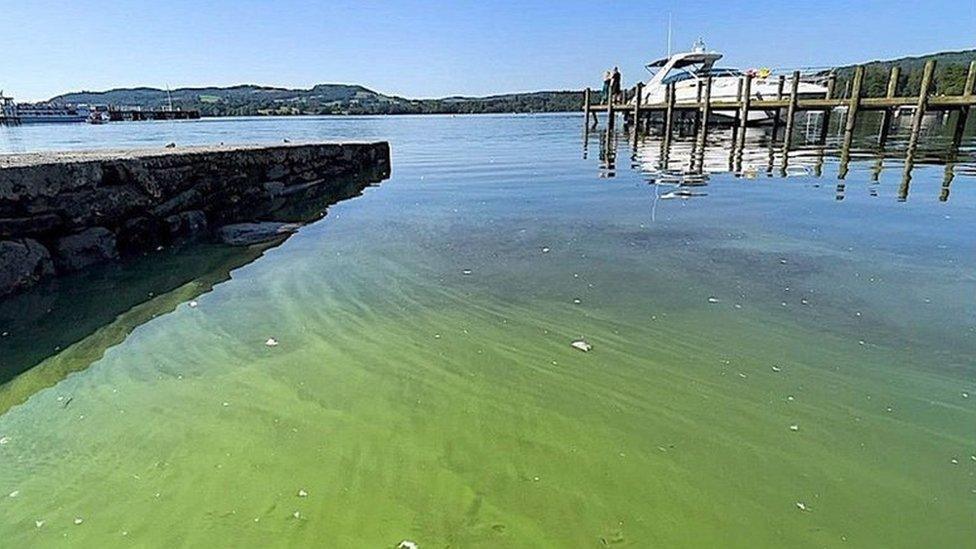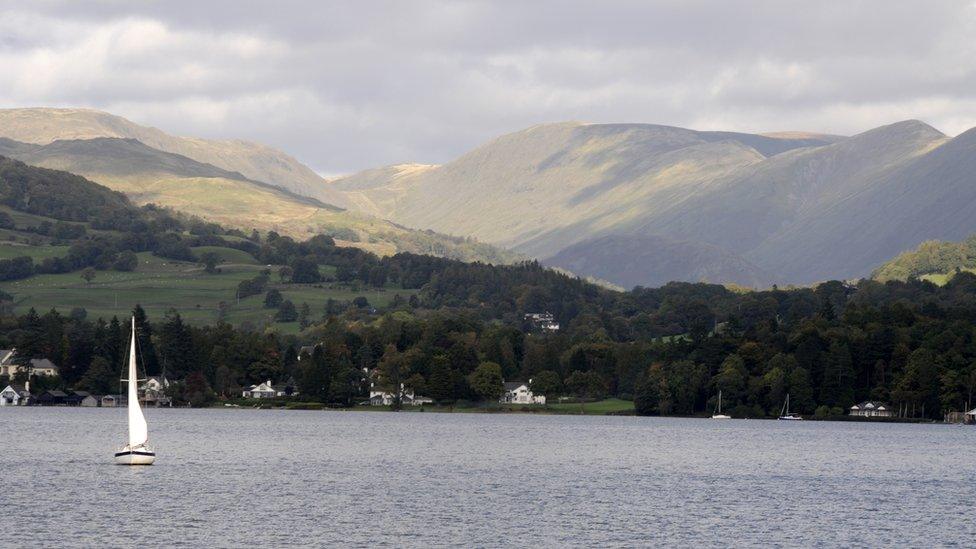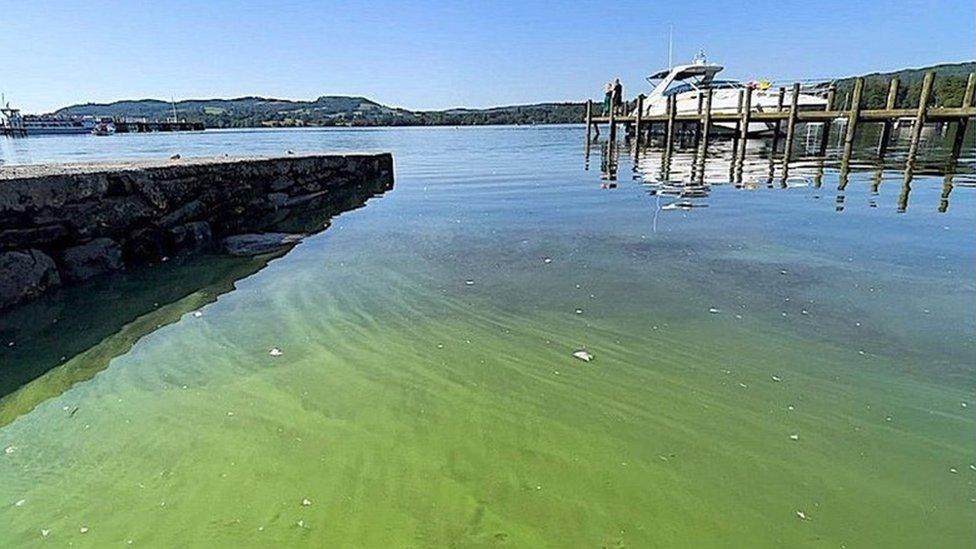Windermere algal blooms prompt warning to stay out of water
- Published

The blue-green algal blooms pictured in 2022
People have been told to avoid going into the water and to keep pets away where algal blooms have grown at England's largest lake.
The Freshwater Biological Association (FBA) said warmer temperatures could lead to harmful toxins being released at Windermere, in the Lake District.
Blue-green algal blooms can make humans ill and kill animals.
The Environment Agency previously said it was committed to improving the lake's water quality.
Pictures of blue-green algae slicks in the lake have emerged on social media in recent days.
Although blooms occur naturally, they are more frequent during warm, dry weather and are exacerbated by nutrients from phosphate in pollutants such as sewage.
However, the FBA said it was not clear whether the reported blooms were producing toxins without detailed laboratory analysis.
Dr Lynsey Harper, from the FBA, said people and pets should still avoid entering the lake where the blue-green algal blooms, also known as cyanobacteria, were present.

The lake is popular for swimming, sailing and other water sports
"Some species of cyanobacteria can produce toxins that are hazardous to humans and animals who are in contact with water," she said.
"Not all species of cyanobacteria produce toxins and a given species may not produce toxins all of the time.
"As a a precautionary measure, it is recommended to stay out of the water, and to keep pets out of the water."
Blooms can accumulate in areas such as sheltered shores or bays, and are revealed by scums or slicks on the water's surface.
Zoologist Matt Staniek previously warned "people's health is being put at risk" after blooms were reported in Windermere in 2022.
Mr Staniek, who last month led a campaign against the discharge of sewage into the lake, claimed phosphate, coming from United Utilities' owned sites, was feeding the blooms.
Environment Agency bosses said they had spent hundreds of thousands of pounds in the past decade to help tackle the problem.
United Utilities said it recognised there were concerns and it was committed to "playing its part" in minimising its impact to the lake.

Follow BBC North East & Cumbria on Twitter, external, Facebook, external and Instagram, external. Send your story ideas to northeastandcumbria@bbc.co.uk, external.
- Published29 May 2023

- Published23 April 2023
- Published17 August 2022
